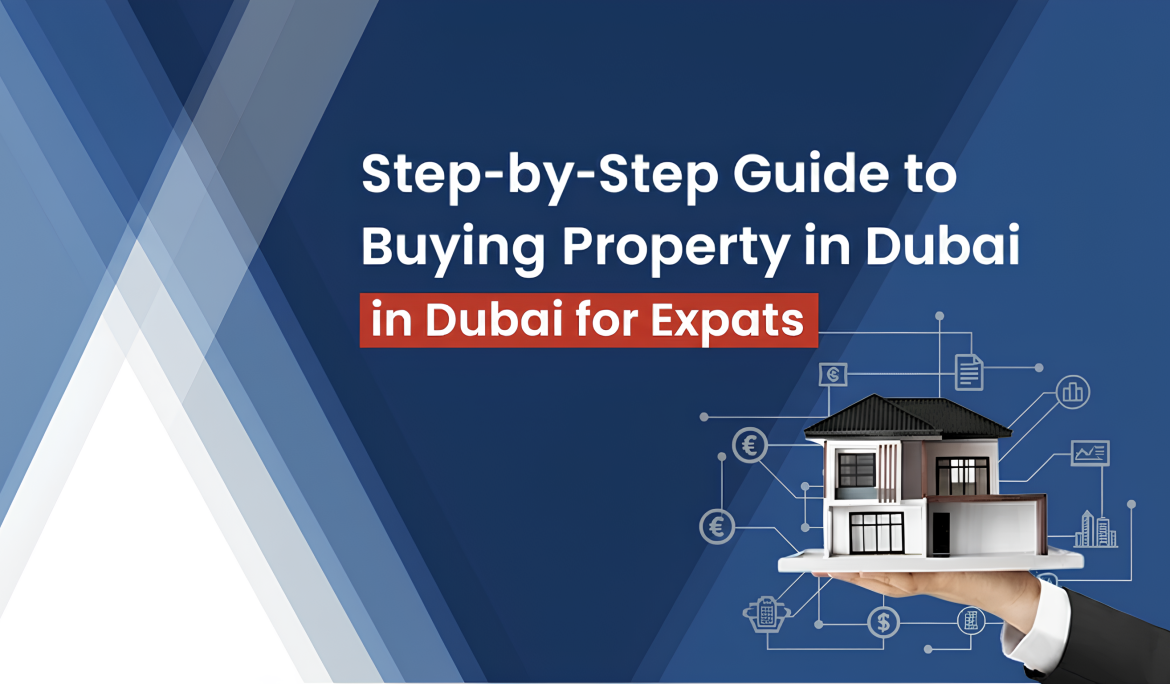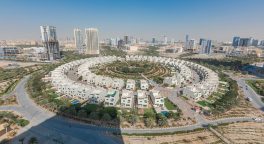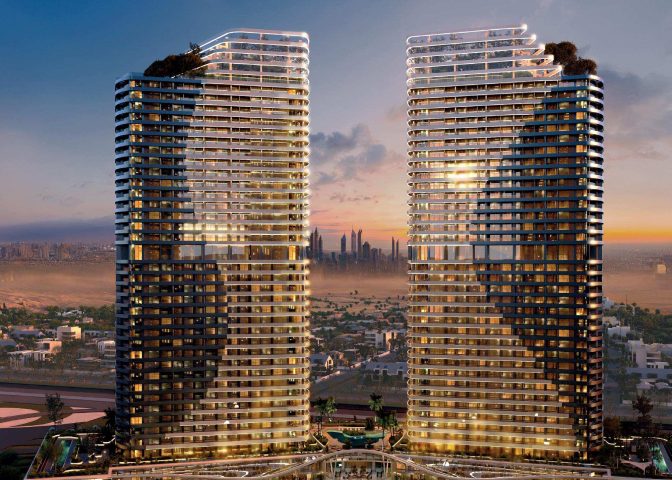
Looking to buy property in Dubai as an expat? Our step-by-step guide on buying property in Dubai for expats covers legal requirements, the complete buying process, costs, and expert tips to help you invest in Dubai real estate confidently.
Why Dubai Is a Top Destination for Property Investment
The real estate sector in Dubai consistently attracts investors from around the world. This is mainly due to its no-tax policy, superb infrastructure, and excellent rental returns. Moreover, with the rise of modern neighbourhoods and the introduction of clear laws. Dubai offers a secure market for buyers.
Long-term residency options like the UAE Golden Visa make Dubai a safe, stable, and profitable destination for investors. Over the years, the Dubai government has made buying property in Dubai for expats more straightforward. If you’re planning to buy property in Dubai, this simple guide explains each step of the process clearly.
Step 1: Understand Dubai’s Property Ownership Laws for Expats
Both foreigners and non-residents can purchase land in designated freehold areas. In those regions, Dubai grants expats the right to hold the land in full. They can even sell it, lease it, or will it to their heirs.
Among the most sought-after freehold locations in Dubai are:
• Dubai Marina
• Downtown Dubai
• Palm Jumeirah
• Jumeirah Village Circle (JVC)
• Business Bay
• Dubai Hills Estate
💡 Tip: It is always prudent to check with the Dubai Land Department (DLD) or your real estate agent whether the land you are looking at is in a freehold area.
Step 2: Determine Your Budget and Financing Options
Before embarking on the journey of buying a house, it is very important to set a budget. Acknowledge the total expenses that will come along with the purchase.
Common Expenses When Purchasing a Property in Dubai:
• Property price
• Dubai Land Department (DLD) transfer fee: Being 4% of the property value
• Agency commission: Roughly 2% (approx.)
• Registration fees: AED 4,000 for properties above AED 500,000
• Mortgage processing fee (if applicable): About 1% of the loan amount
In case you need financing, outsider nationals can get a mortgage through local banks in the UAE. This is possible if they fulfil the bank’s requirements, such as steady income, minimum salary, and good credit history.
💡 Pro Tip: Take advantage of a mortgage calculator to get an idea of your monthly payments and total interest costs prior to submitting your application.
Step 3: Choose a Reliable Real Estate Agent or Developer
By working with a RERA-accredited (Real Estate Regulatory Agency) agent, you can be sure of a hassle-free and open process. An agent who is licensed will:
• Find out the properties that suit your needs and are within your budget
• Keep the negotiations professional
• Check that all the legal documents are ready
When buying off-plan property, confirm the developer’s RERA registration and Escrow account status to ensure your investment’s safety.
Step 4: Make an Offer and Sign the Sales Agreement
After you locate the ideal property, the next step is to present the seller with a formal offer. Both parties sign a Memorandum of Understanding (Form F) via the Dubai REST app or through a registered agent once they agree on the price.
The agent keeps the security deposit, usually 10% of the purchase price, until the deal is complete.
Step 5: Obtain a No Objection Certificate (NOC)
The developer hands out a No Objection Certificate (NOC) that affirms the property has no pending service charges or liabilities.
This procedure is obligatory prior to the transfer of the title.
Typically, NOCs are priced between AED 500 and AED 5,000, contingent upon the developer.
Step 6: Transfer the Property Ownership at the Dubai Land Department.
Transferring ownership is the last stage of the process. The buyer and seller have to go to the Dubai Land Department (DLD) or a trustee office that DLD approves together.
The following documents should be brought with you:
• Passport and Emirates ID (originals)
• Form F signed
• Cheque (manager’s) for the total property amount
• NOC from the developer
You will be given the Title Deed after the transaction has been concluded, which will legally recognise you as a property owner in Dubai.
Step 7: Apply for a UAE Residency Visa (Optional)
In case your property is worth amounts to AED 2 million (approximately USD 545,000) or above, you could be a candidate for the UAE Property Investor Visa. It is popularly known as the Golden Visa. You can also sponsor your family.
This allows you and your family to live in the UAE long-term, with benefits such as:
✅No income tax
✅Multiple-entry visas
✅Business opportunities
Expert Tips for Expats Buying Property in Dubai
✅ Always confirm the RERA registration of the property and the reputation of the developer.
✅ Deal exclusively with licensed realtors.
✅ Try to stay away from cash payments. Instead, use the manager’s cheques for safe transactions.
✅ If purchasing a property under construction, check the construction progress online via the DLD website.
✅ Know the laws of Dubai regarding tenancy and ownership and your rights and obligations.
📈 Final Thoughts
Buying property in Dubai as an expat is simple and safe. However, it is important to take the right steps and collaborate with reliable experts. Moreover, with the high ROI potential, a fast-growing economy, and lifestyle offerings that no other place offers. Dubai is still one of the most preferred real estate markets for overseas investors. Finally, if you are in the market for a high-end flat in Downtown Dubai or a spacious family villa in Arabian Ranches, it’s now easier than ever to have a piece of this dynamic city!

















